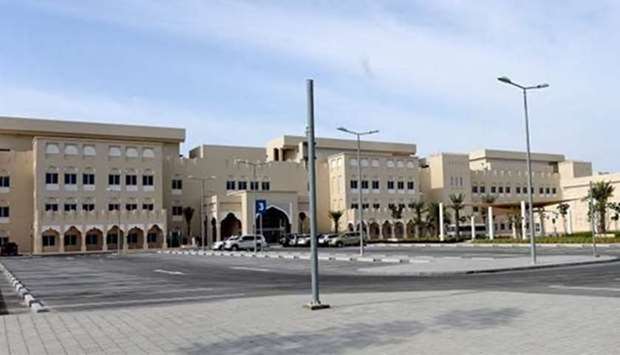*Over 4,000 patients received high-quality treatment
Earlier last month, Hamad Medical Corporation's (HMC) Ras Laffan Hospital discharged the final group of its recovered Covid-19 patients and was declared as a dedicated Covid-19 treatment facility.
Officials at the hospital have said that since opening on April 21 as part of national efforts to expand the capacity to care for coronavirus patients, Ras Laffan Hospital has provided high-quality treatment to more than 4,000 Covid-19 patients with mild to moderate symptoms.
Saadia Ahmed al-Hubail, Assistant Executive Director of Nursing at the Ambulatory Care Center and Head of the Nursing team at Ras Laffan Hospital, said: "The hospital was initially opened with a capacity of 94 beds and then gradually increased to 762 beds, which included increasing from 10 to 32 ICU beds. During the three months, we operated as a dedicated Covid-19 treatment facility, over 600 staff tirelessly worked to ensure patients received the best possible care. I'm proud to say that nurses played an important role in delivering this care.
"While Ras Laffan Hospital was a dedicated Covid-19 treatment facility, we provided all necessary care to our patients, the majority of whom were manual workers living in the industrial areas. We cared for patients of various ages, many of whom were transferred from HMC's Hamad General Hospital and the Communicable Disease Center after testing positive for the coronavirus.
"At our busiest, we were admitting between 120 and 150 new patients each day. Over 4,000 Covid-19 patients were treated at our facility and discharged backed into the community after recovering from the virus. Only three patients were transferred to the ICU at Hazm Mebaireek General Hospital for more specialist care, which I believe is a direct reflection of the high-quality care we were able to provide at our facility."
Mona al-Hetmi, Director of Nursing Education at the Ambulatory Care Center, said: "We worked very hard to ensure our nursing teams at Ras Laffan Hospital were fully unified and that each individual nurse was able to perform their role effectively. Ensuring that teams who have never worked together before are able to seamlessly integrate can be challenging and to help prepare our nurses we organised an intensive training course. Each nurse working at Ras Laffan Hospital was required to complete a four-hour course prior to starting work at the facility.
"We also provided nurses with in-depth training on infection control procedures and the application of security and safety procedures. They received information on the different roles within the hospital as well as the various procedures and processes that were unique to this new facility.
"As our nursing staff were coming from a number of different facilities and had varying backgrounds, including different specialties and experience levels, it was very important to us that we ensured they received the same orientation so that they were able to act as a cohesive unit.
"The training also helped to make them feel more comfortable about working in a high-risk and high-stress environment. Organising these training courses allowed us to provide nurses with additional mentoring and helped us to build a strong and effective team."
Al-Hetmi pointed out that nursing teams worked 12-hour shifts and were involved in a variety of tasks that went above and beyond bedside care. She said a team of 12 nurses from HMC's Department of Psychiatry were also essential to caring for patients and staff, providing necessary psychological guidance and support as needed.

